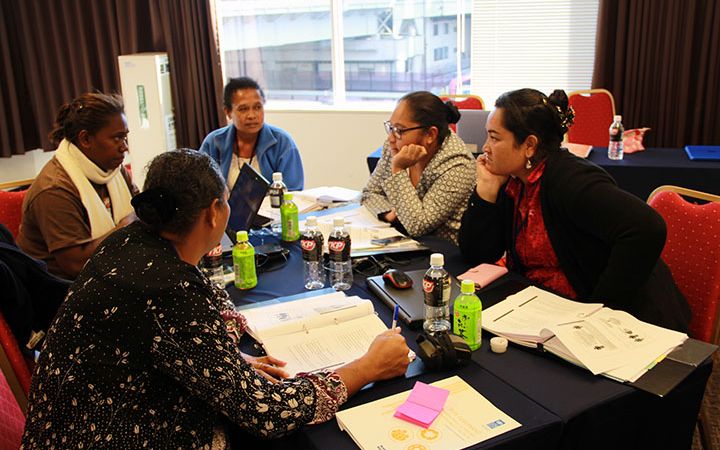Displaying 3101 - 3110 of 3509
19 May - Bern, Switzerland - Invited as a guest lecturer on the occasion of the 9th meeting of the Advisory Group on Environmental Emergencies, UNITAR Executive Director, Carlos Lopes, addressed the issue of environmental disaster response an
The Inter-Agency Standing Committee (IASC) - which is the main forum for coordination, policy development and decision-making between key UN and non-UN humanitarian partners - and UNITAR’s Public Finance and Trade Programme successfully launched the new e-Learning course on information management in humanitarian crises on 26 April 2011.
27 May 2011 – Addis Ababa, Ethiopia - With the support of the United Nations Development Programme (UNDP), UNITAR’s Multilateral Diplomacy Programme (MDP) has successfully implemented a five day training course for Africa
20 May 2011- Pretoria, South Africa - From the 16 to 20 May twenty South African Diplomats attended a UNITAR-training on the “Working Methods of the United Nations Security Council”. The training was jointly organized by UNITARs’ Multilateral Diplomacy Programme (MDP) and the South African Department of International Relations and Cooperation (DIRCO).
25 May 2011 - Addis Ababa, Ethiopia - In cooperation with the African Union and the support of the International Organization de la Francophonie (OIF), UNITARs’ Multilateral Diplomacy Programme (MDP) has successfully implemented a workshop on Conference Diplomacy and Multilateral Negotiations for the benefit of diplomats accredited to
Abyei, Sudan - The Satellite Sentinel Project (SSP) is documenting this week’s military attacks in Sudan's disputed border region of Abyei following international reports confirmed by the United Nations of bombardment and military movement.
More than 25 countries have to date expressed an interest in participating as a pilot country in the UN CC:Learn Pilot Projects to Strengthen Human Resources, Learning and Skills Development to Address Climate Change. With support provided by the Swiss Development Cooperation, UN CC:Learn will be in a position to support three countries in taking a strategic, long-term and results-oriented approach to climate change learning, taking into account national priorities and climate change objectives.
18-20 May 2011, Geneva, Switzerland. How can capacities of research and training institutions in developing countries be strengthened to support climate change adaptation and mitigation action? This question was at the heart of the meeting of Partners of the UNITAR-coordinated project Capacity Development for Adaptation to Climate Change & GHG Mitigation in Non-Annex I Countries (C3D+).
The UN CC: Learn Library of UN Materials Relevant for Climate Change Learning contains now more than 1,000 entries. Featured materials include slide presentations, training packages, technical publications, videos, etc. prepared by UN organizations. Some of the materials were developed in collaboration with non-UN partners.
18-19 April 201, Jakarta, Indonesia - In cooperation with the Diplomatic Academy of Indonesia, UNITAR's Multilateral Diplomacy Programme (MDP) organized a two day training workshop for Junior, Mid-level and Senior Diplomats from Indonesia and the Association of Southeast Asian Nations (ASEAN).


